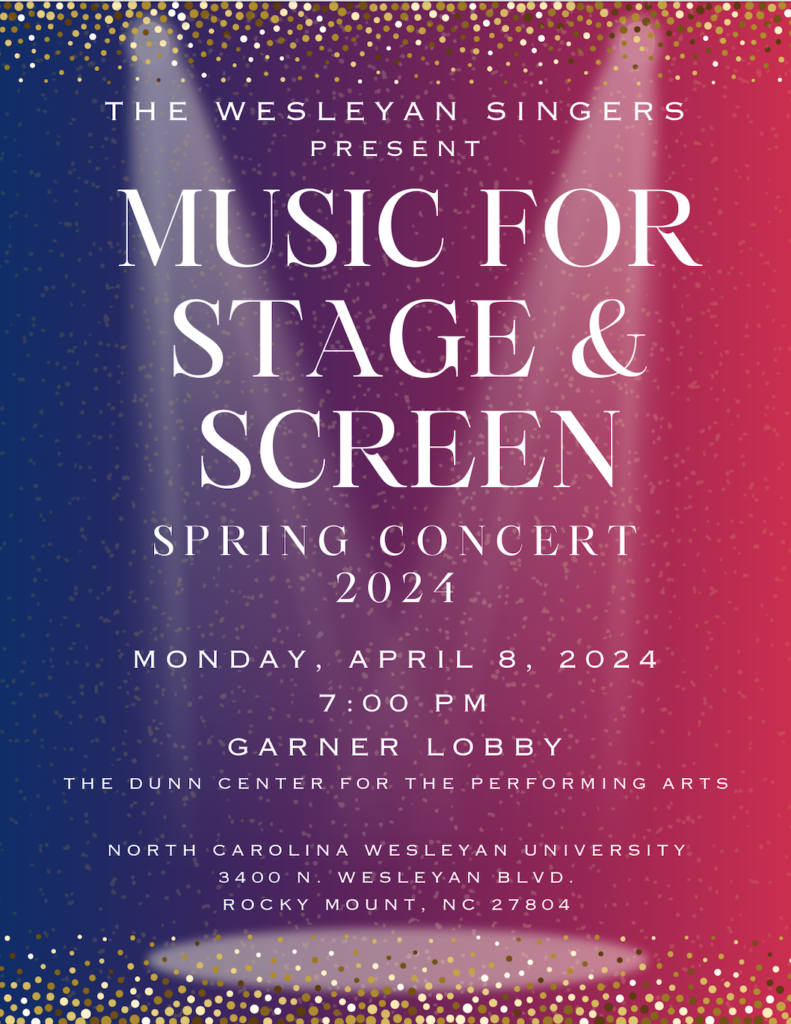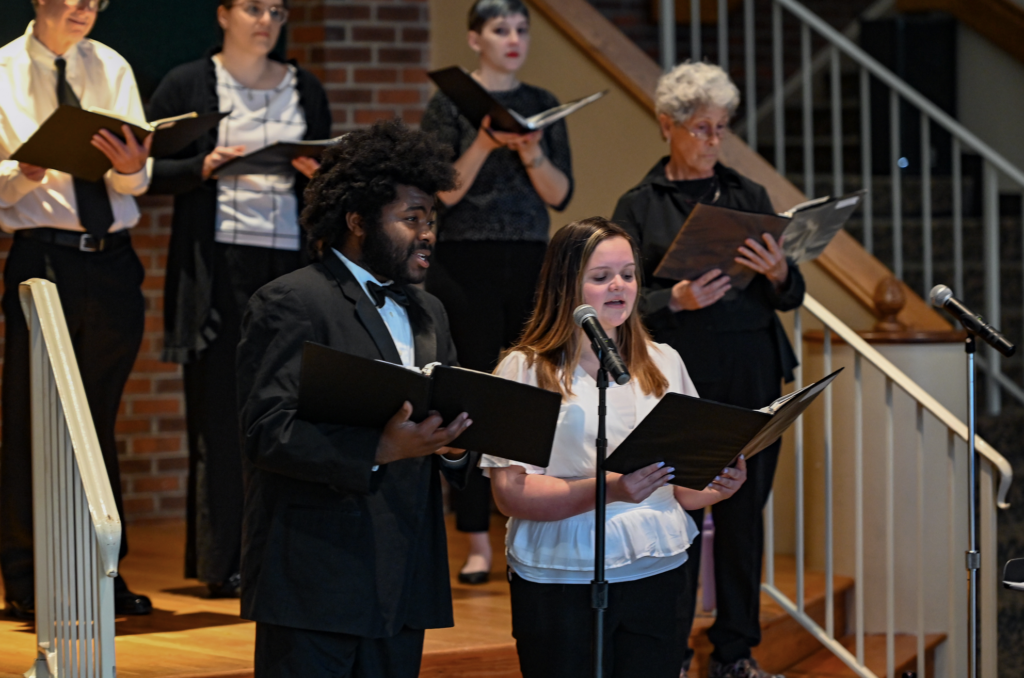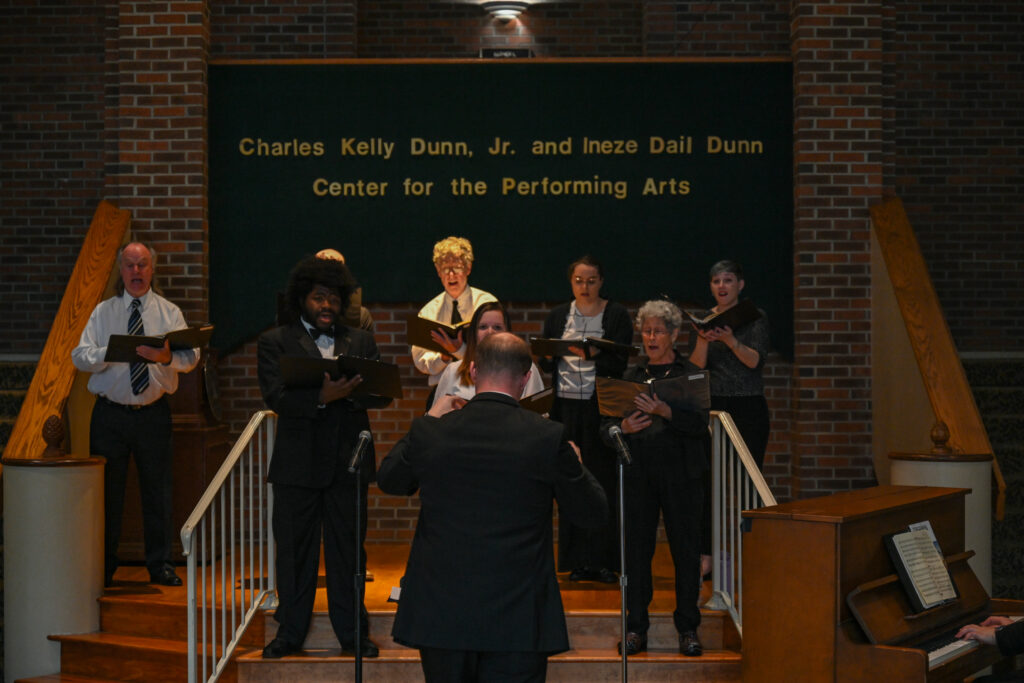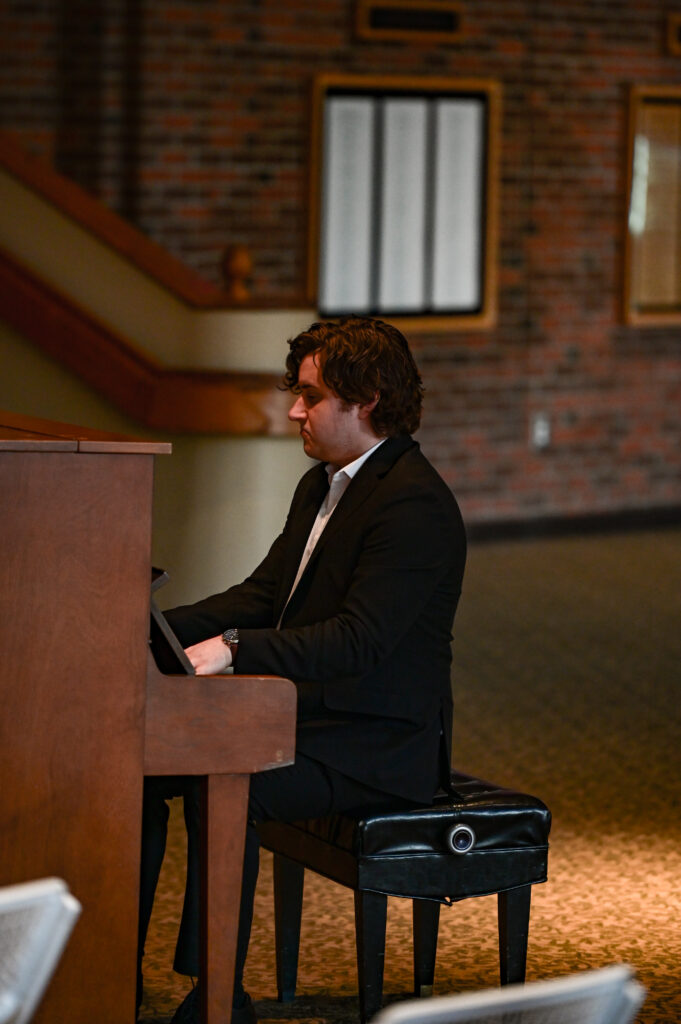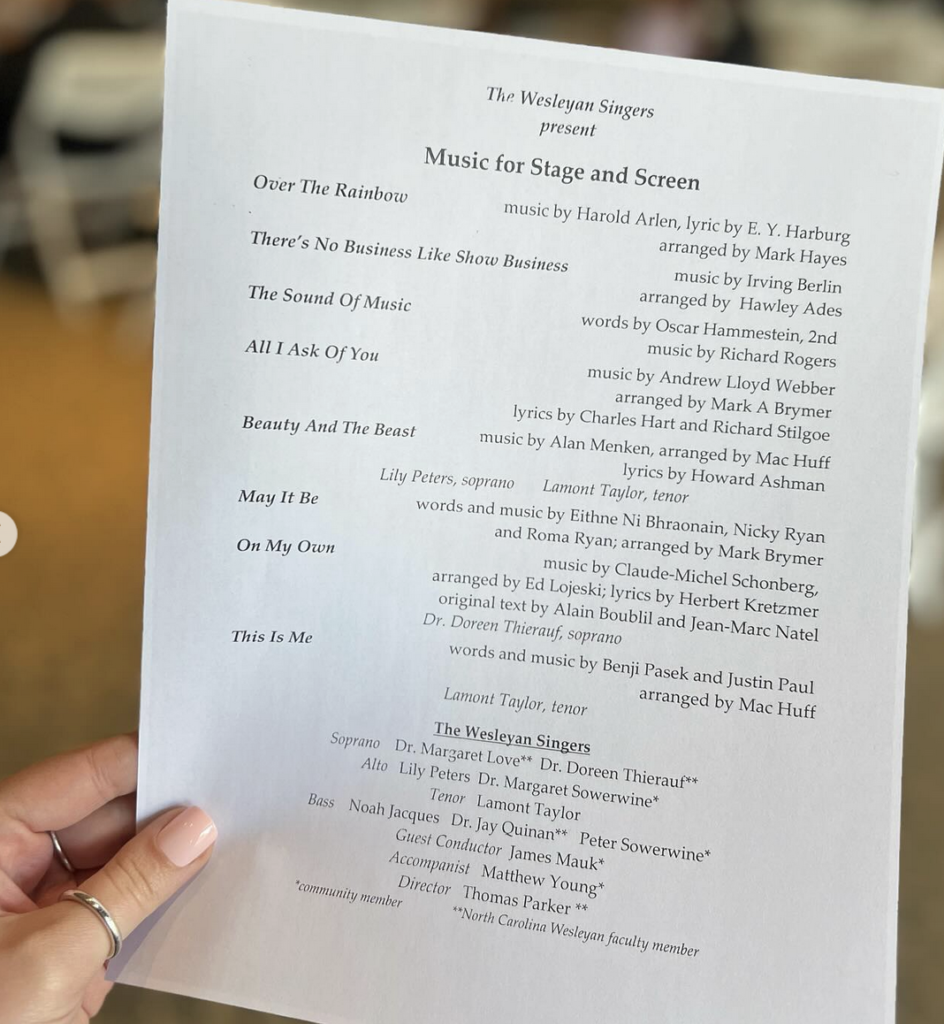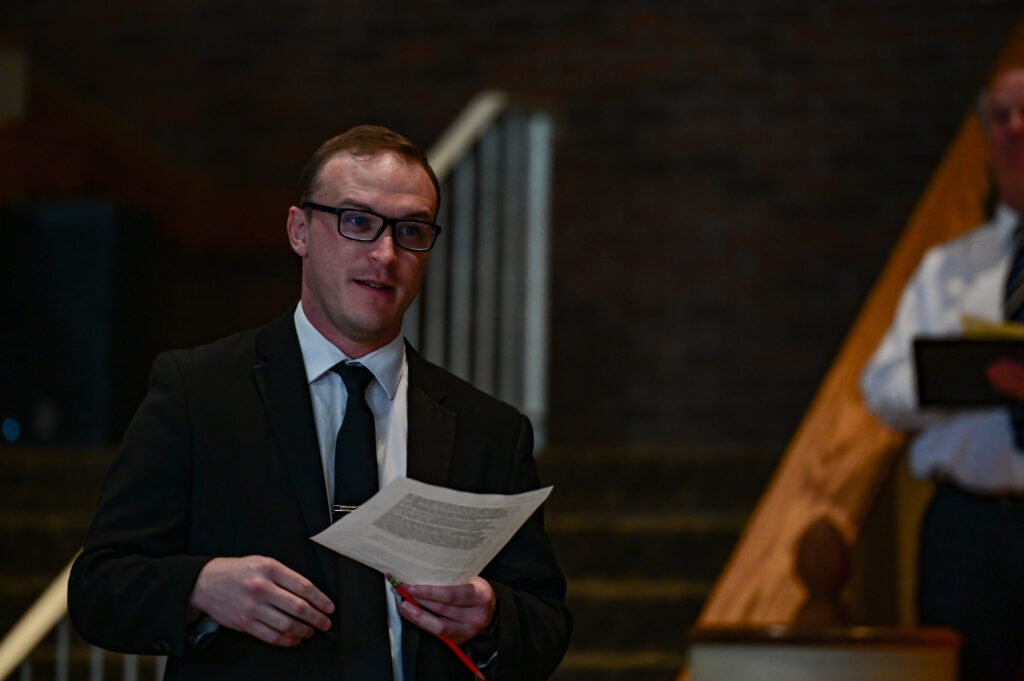ROCKY MOUNT, NORTH CAROLINA – North Carolina Wesleyan University (NCWU) has announced three new scholarships that will accept applications starting Fall 2024. Each scholarship was generously offered in memory of a loved one and aligns with Wesleyan’s beliefs of being personal, practical, and purpose-driven.
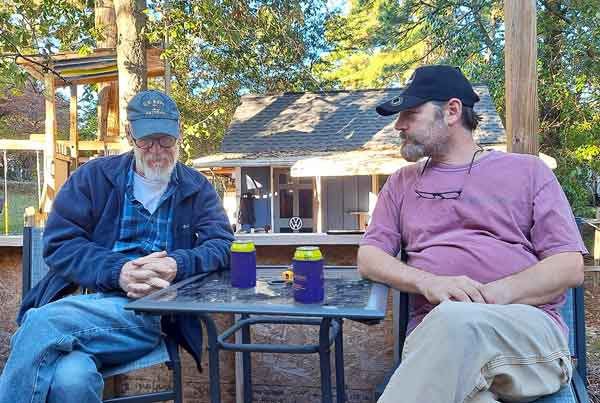
The Charles Randall Ranke Scholarship is an annual scholarship established by Stephen Ranke (Infrastructure and Systems Administrator with NCWU), in memory of his father, Charles Randall Ranke. Charles Randall Ranke was a proud veteran of the U.S. Navy, and an Eagle Scout with the B.S.A. The scholarship will be available to any student with preference given to an Eagle or Gold Scout with the next consideration being any Veteran student. The student must be of good character, remain in good standing with the University, maintain an overall 2.5 GPA and have a financial need. In the event no student meets the aforementioned preference, it will be awarded to a worthy student according to the Universities’ general financial aid criteria. This will become available Fall 2025.
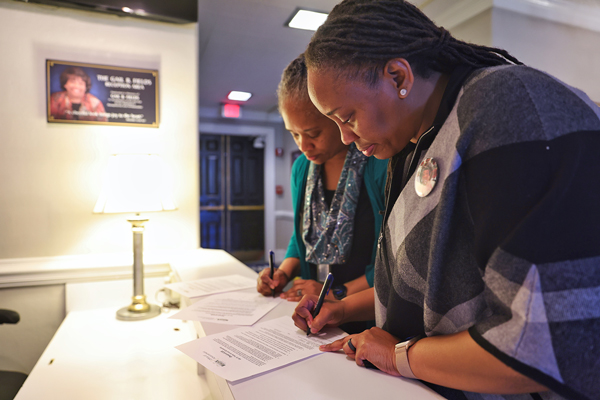
Gail B. Fields Annual Scholarship is established by Keiya Fields McKoy and Denikee Fields Davis (Student Affairs Administrative Assistant for Wesleyan) in memory of their mother. Gail Fields was not only Wesleyan’s loyal and dedicated receptionist, but friend and family. The scholarship is open to students majoring in Religious Studies to fund research, tuition, and educational expenses in furtherance of their degree. The recipient should be a sophomore, junior, or senior with a GPA of 2.5 or greater. Student selection will be determined by the Financial Aid Office and the Religious Studies Department.

Howard Parsons Biomedical Endowed Scholarship is established by Judith Vilagos Parsons ‘75 in memory of her husband, Howard T. Parsons ‘74. Judith Parsons established an annual scholarship in 2022 that honored her late husband, but she wanted a scholarship that would remain even after her memory. Mrs. Parsons shares, “The quest for knowledge is a lifelong pursuit and for Howard and me, Wesleyan was pivotal in shaping not only our lives and careers, but also our understanding of how we can best serve others. Our hope is that this gift will assist students in their own journeys, and allow the same wonderful experience of learning Wesleyan provided us.” Primary consideration will be given to Biomedical Science students or other areas of science to fund research, tuition, and educational expenses in furtherance of their degree. Scholarship recipients will be selected by the Biomedical Science faculty, with preference given to those who would most benefit academically and financially. Recipients must be a U.S. citizen of good character, remain in good standing with the University, maintain a minimum of 3.0 GPA in the sciences and 2.5 overall GPA.
For more information about Wesleyan’s scholarship opportunities, please visit https://ncwu.edu/scholarships/ or information about donating for a cause you are passionate about, visit https://ncwu.edu/give/.
Dr. Janice B. Howroyd Named as NCC Commencement Speaker
ROCKY MOUNT, NORTH CAROLINA – Dr. Janice Bryant Howroyd, Founder and Chief Executive Officer of The ActOne Group and a native of Tarboro, will give the keynote address during Commencement at Nash Community College on Friday, May 10. To learn more about NCC’s Commencement, visit https://www.nashcc.edu/campus-life/graduation/.
Howroyd is a wonderful partner for both NCWU and NCC. She joined NCWU’s Boards of Trustees in 2020 and also established The Janice Bryant Howroyd Endowment that allows eligible students an annual scholarship opportunity. NCWU also established a partnership with Howroyd’s company The ActOne Group to provide extensive career development services for current students and alumni.
Through a partnership with NCWU’s Adult and Professional Studies Program, students who graduate from NCC have automatic acceptance and can take advantage of our transfer friendly policies, competitive transfer scholarships and tuition breaks, as well as the 2+ Wesleyan Grant Program.
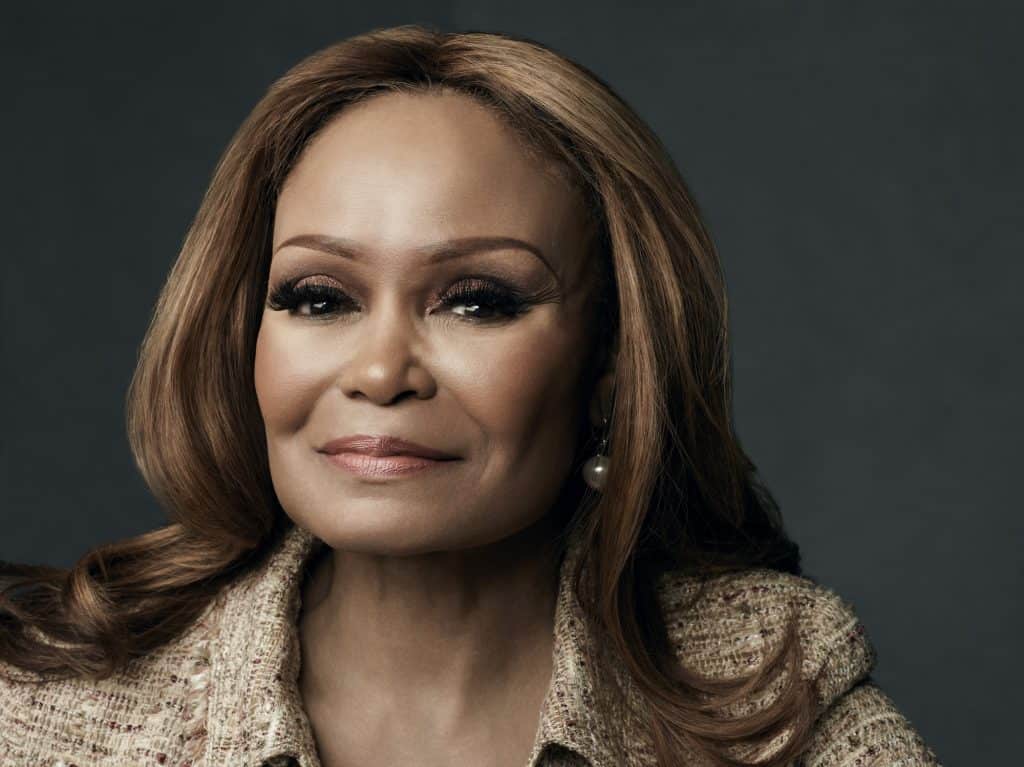
The ActOne Group is a multi-billion-dollar, award-winning, international talent and talent technology enterprise with multiple divisions that serve all areas of employment. Founded by Howroyd in 1978, it now operates in over 35 countries and offers staffing services via Apple One, A-Check Global and AgileOne, among other platforms. The organization also aggregates some of the world’s best technologies and systems that support worldwide staffing and HR needs.
Her leadership style stems from her experience in a segregated educational system during her youth. Her leadership style is framed on Diversity, Equity & Inclusion values, while providing transparency and accountability for her organizational and philanthropic culture.
Howroyd is the recipient of numerous honors and awards, including Black Enterprise’s coveted 2022 Woman of the Year award. She was the first-ever BET Honors Entrepreneur of the Year. She has been a presidential appointee to several committees, including Barack Obama’s Presidential Board of Advisors on Historically Black Colleges and Universities, an appointment to the Federal Communications Commission’s Advisory Committee on Diversity and Digital Empowerment (ACDDE), and continues to serve on the ITAC 10 (International Trade Advisory Committee – Professional Services). She is the newly elected Chair of the Women’s Leadership Board at Harvard University and supports inclusive programs for women and minorities as the first African American to gift $10 million to the University of Southern California, as well as millions to other institutions that include her Alma mater, the nation’s largest HBCU, North Carolina Agricultural and Technical State University. Howroyd uses her presence as an innovator and as a connector for humanity, saying, “Never compromise who you are personally to become who you wish to be professionally!”
NCWU Becomes First Institution to Host “Science of Reading” Observation with NCICU
ROCKY MOUNT, NORTH CAROLINA – North Carolina Wesleyan University’s (NCWU) Teacher Education Program was visited by three representatives of the North Carolina Independent Colleges & Universities (NCICU). The visit was an effort to review how the Science of Reading was being implemented into NCWU’s nationally and state-accredited Teacher Education program, where instructors teach pre-service teachers the science and art of how to teach Reading in the elementary school setting. The Science of Reading is a research-based methodology regarding the best practices to teach K-6 students how to read and comprehend. Dr. Lois M. Hart, Associate Professor of Education, explains “NCWU’s Teacher Education Program has restructured their reading classes to align with the Science of Reading research. Elementary education pre-service teachers are provided with teaching strategies and experiences that have been proven by research to result in producing readers who are able to read fluently and comprehend at high levels.”
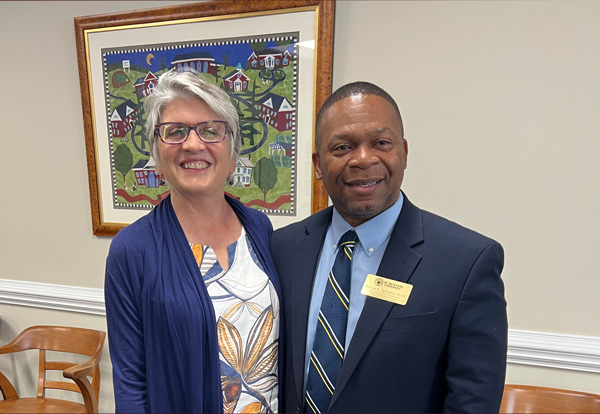
Dr. Kelvin Spragley, Director of Teacher Education and Diversity and Inclusion Liaison, along with education faculty, arranged a breakfast, campus tour, and mock pre-service teaching demonstrations for the visit, making NCWU the first institution to host an observation visit with NCICU. Students and education faculty had the unique opportunity of paneling with the NCICU visitors and discussed all of the changes in the Reading curriculum. This followed observations of both EDU 210: Introduction to Foundations of Reading, and EDU 312: Teaching K-2 Literacy.
NCWU’s Teacher Education Program takes pride in knowing that learning to teach Reading starts in their classroom courses, and then it is the pre-service teacher’s responsibility to spread these practices, to the best of their ability, in the K-6 classrooms. Dr. Hart says “Children’s potential to become successful in school begins with learning to read and comprehend at high levels. Teachers’ abilities to effectively deliver strong reading instruction begins with ensuring all teacher preparation programs implement scientifically based reading instruction to pre-service teachers.”

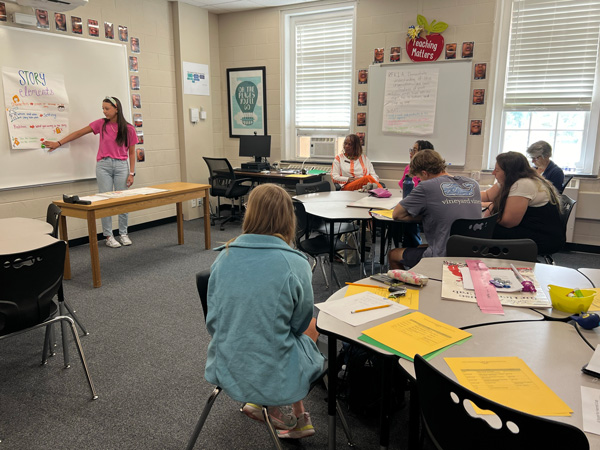
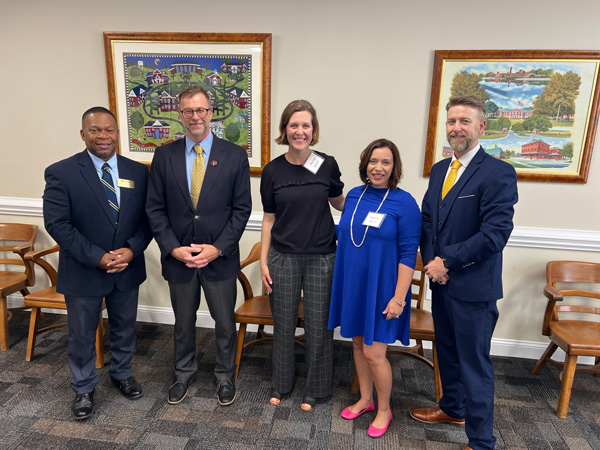
NCWU Receives Grant for Digital Humanities Teaching & Learning
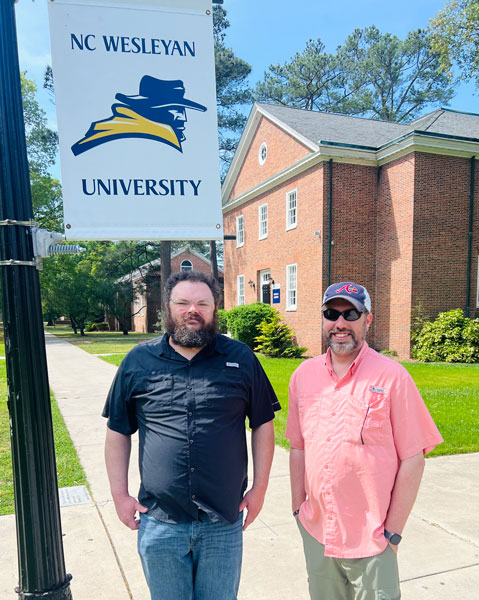
ROCKY MOUNT, NORTH CAROLINA – North Carolina Wesleyan University recently received a $60K grant from The National Endowment for the Humanities. Over the two-year grant period, NCWU will expand the Digital Humanities Lab, create a new course (Introduction to Digital Humanities), improve faculty knowledge of the digital humanities, incorporate local history into digital humanities projects, and promote undergraduate student research projects using digital humanities tools and methods. The proposed expansion of NCWU’s digital humanities programming is aligned with the institution’s mission and commitment to the eastern North Carolina region and its emphasis on innovative teaching approaches to use new information technologies.
Project co-directors, Dr. Jason W. Buel (Communication/Media Arts) and Dr. Shane M. Thompson (Religious Studies) established NCWU’s first Digital Humanities Lab as a physical space on campus to raise the profile of the University’s humanities, with the goal to make them more exciting, accessible, and modern to the general student population.
Provost and Senior Vice President for Academic Affairs, Dr. Joseph H. Lane, Jr., states “We are very excited that Dr. Thompson and Dr. Buel have received this grant. Their work in the area of digital humanities is the perfect example of the ways that North Carolina Wesleyan enriches our students’ lives with innovative teaching approaches that take advantage of the amazing new tools that can enrich our classrooms and our contributions to the community.”
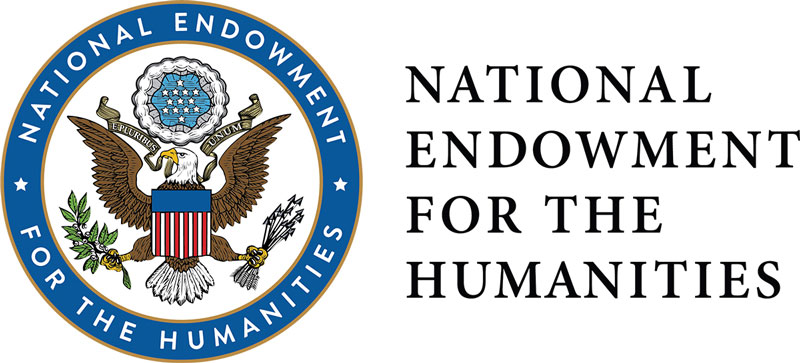
The National Foundation on the Arts and the Humanities Act of 1965 created the National Endowment for the Humanities as an independent federal agency. The law identified the need for a national cultural agency that would preserve America’s rich history and cultural heritage, and encourage and support scholarship and innovation in history, archaeology, philosophy, literature, and other humanities disciplines. The Endowment awards grants to top-rated proposals examined by panels of independent, external reviewers.
About The National Endowment For The Humanities
Created in 1965 as an independent federal agency, the National Endowment for the Humanities supports research and learning in history, literature, philosophy, and other areas of the humanities by funding selected, peer-reviewed proposals from around the nation. Additional information about the National Endowment for the Humanities and its grant programs is available at: www.neh.gov.
Bob Ross Bringing Back the Joy to NCWU
ROCKY MOUNT, NORTH CAROLINA – North Carolina Wesleyan University President, Dr. Evan D. Duff, along with Art Curator, Jan Sullivan Volz, and President of Bob Ross Inc., Joan Kowalski, announced that more of Bob Ross’ famous original paintings are set to adorn the walls of The Mims Gallery at The Dunn Center this upcoming holiday season.
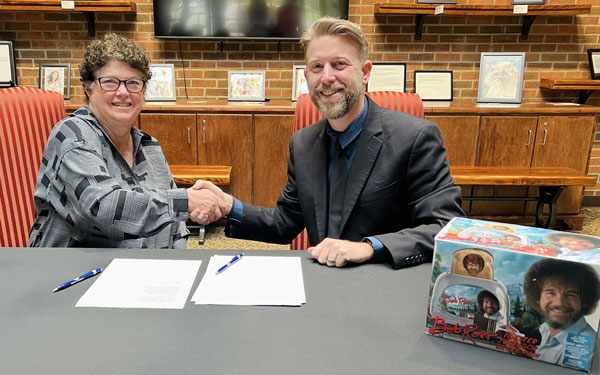
Bob Ross Bringing Back the JOY will be on display in the Mims Gallery of The Dunn Center, located on the beautiful NC Wesleyan University campus from Monday, December 2, 2024 through Monday, January 13, 2025. The 2024 exhibition will entail 76 different paintings than the previous ones on display at NCWU, including special pieces aside from those featured on his PBS show, The Joy of Painting. This will be the second Bob Ross exhibit in North Carolina, but still the largest exhibition ever seen under one roof globally.
Robert Norman Ross, an American painter, art instructor and television host known by so many for his permed hair, showed the world how to paint fun pieces of art. He was the creator and host of The Joy of Painting, an instructional television program that aired from 1983 to 1994 on PBS in the United States, CBC in Canada, and similar channels in Latin America, Europe and elsewhere. Ross subsequently became known through his posthumous internet presence.
During the holiday season of 2023, there were 76 of Ross’ paintings on display from November 1, 2023 through January 4, 2024. The exhibit was viewed by over 11,000 visitors that traveled from all over the country, and beyond, to see the magnificent work. “We are honored and thrilled that we will have this opportunity to share Mr. Ross’ work again with so many of his fans during the holiday season… this is truly a gift to those that cherish the memory of a great artist and humanitarian,” said Ms. Volz.
The exhibit will open to the public on Monday, December 2, 2024 and run through Monday, January 13, 2025. Advance Tickets will go on sale Thursday, July 4th for $15 per person. Free admission for children under five. For more information about the artwork, contact Jan Volz, Gallery Art Curator at 252.985.5268 or jvolz@ncwu.edu and sign up for the email list at ncwu.edu/artgalleries.
19th Annual Student Research Symposium on Campus
ROCKY MOUNT, NORTH CAROLINA- North Carolina Wesleyan University hosted their 19th Annual Student Symposium for the 2024 Spring Semester on Wednesday, April 10 at The Dunn Center. The Symposium included student oral presentations, guest speaker, Meredith Gringle, and concluded with a student poster presentation.
Co-Coordinator, Dr. Heather Louch, shares that the Student Symposium started in 2004 as a way for students conducting research to share that research with the university community. It was modeled after a conference, where research is shared either through poster sessions or oral presentations. Louch states, “Presenting at a conference is something that most students do if they go on to graduate school; with the Symposium, they gain a similar experience and see the full circle of research from developing an inquiry to sharing the results with a broader audience. It has been a successful event for so many years only due to the ongoing support of colleagues at the University.”

Louch often asks students what they learned about “doing science,” and the admittance of frustration, lack of motivation or interest, and realization of how much work it requires is also paired with how rewarding and fun it can be. Louch responds, “All of these comments encompass the sentiments felt by researchers as they work through their investigations and prepare to share their research, so in that regard, students have experienced first hand the ups and downs of the research investigation while also being able to discuss those findings with the community. What better way to learn about ‘doing science’?”
Winners of the poster competition have received a certificate and a cash prize courtesy of the School of Mathematics and Sciences (all poster presenters were enrolled in science courses). The winners are as follows (upper and lower designation refers to the course number with 300/400 being the upper-level courses):
1st Place Lower-Level Category:
Dunya Salem – Does Texture Protect Caterpillars from Predation?
2nd Place Lower-Level Category:
Mackenzie Landers, Wesley Owens, Stephanie Valle – How Ladybug Spots Affect Predation
1st Place Upper-Level Category:
Chloe Lynch, Kristalyn Minchew, Christian Van Norden – The Effects of Acetaminophen and Microplastics on Physella acuta Movement, Growth, and Reproduction
2nd Place Upper-Level Category:
Gracie Wade – Investigating and Observing Feline Activity Through the Eyes of Hunger
Provost and Senior Vice President for Academic Affairs, Dr. Joseph Lane, states, “The Student Symposium represents the very best example of North Carolina Wesleyan’s personal, practical, and purpose-driven approach to education. We are so proud of the students who presented their research and who demonstrated excellent command of their topics when answering questions from the judges, faculty, and community.”
6th Annual Academic Writing Competition Accepting Nominations

If you’re a current NCWU student, the 6th Annual Academic Writing Competition is open for your submissions!
You can upload up to two papers that you have written for NCWU classes in any year in any of the following categories:
- Natural Sciences and Mathematics
- Social Sciences and Education
- Business and CIS
- Humanities
- First-Year Composition (ENG 090, 111, 112)
While revisions are encouraged, you don’t have to write anything new. You can submit papers in categories other than your major(s).
Winners in each category will receive a gift card and will see their work published in Omnium: The Undergraduate Research Journal at North Carolina Wesleyan University. Other students and professors can use your essay as an example of great student writing.
The first prize in each category wins $50, the second prize wins $25, and the third prize wins $10. Visit https://omniummedia.wordpress.com/ to read essays by our previous winners!
Submit your paper(s) through this link.
If you have any problems with the link or if you have questions, please contact Dr. Doreen Thierauf at dthierauf@ncwu.edu.
The deadline for submissions is May 1, 2024, at midnight. Winners will be announced shortly thereafter.
We look forward to reading your papers!
Pfizer Executive and Site Lead announced as NCWU Commencement Speaker
ROCKY MOUNT, NORTH CAROLINA – On May 4, 2024, North Carolina Wesleyan University will celebrate its Spring Commencement with more than 300 graduates. This year’s commencement speaker will be Dr. Kara Renai King who is the Vice President and Site Lead for Pfizer Pharmaceuticals– Rocky Mount facility.

As Vice President and Site Lead for Pfizer, Dr. King is responsible for one of the largest sterile injectable facilities in the world, with more than 1.4 million square feet of manufacturing space on 250 acres in Eastern North Carolina. Nearly 25 percent of Pfizer’s sterile injectables used in U.S. hospitals are produced at the site. A wide range of products are produced at Rocky Mount, including anesthesia, analgesia, therapeutics, anti-infectives and neuromuscular blockers. These products are available in small volume presentations, such as ampules, vials and syringes. More than 200 million units are processed at the Rocky Mount site annually to help treat patients around the world.
Dr. King holds a bachelor’s degree in Biology from Hampton University, a Masters’s degree in Cell Biology & Biotechnology from University of the Sciences, and a Doctorate in Organizational Leadership from Eastern University.
Dr. King is recognized as an expert on leadership who has extensive experience in the biopharmaceutical industry in both traditional and contract development manufacturing organizations. Her experience ranges from early drug product development to commercial operations. She has held leadership roles in Quality, Tech Ops and Drug Product Operations (from bulk product manufacturing to finishing). She joined Pfizer in 2021 following successful leadership roles with Minaris Regenerative Medicine and Merck.
Dr. King delivers value to organizations through her servant leadership style complimented by her strong foundation in science, strategic mindset, and the ability to create an environment that fosters joy, creativity and innovation. Hallmarks of her leadership are building high performing teams, elevating leadership capability, and delivering results.
“We are looking forward to Dr. King’s address to our Class of 2024. Under her leadership, Pfizer and NCWU have forged a strong partnership that provides extraordinary opportunities to Wesleyan’s students and graduates, and that partnership was made stronger by our shared efforts to overcome the devastation of last summer’s tornado. Dr. King’s approach to leadership and strategic vision will provide an inspiring example to our graduates,” stated President Dr. Evan D. Duff.
“I’m humbled and excited to stand before the talent of the future from NC Wesleyan University at this year’s 2024 Commencement,” noted Dr. King.
Dr. King has long demonstrated engagement in and solicitude for the community in which she lives and works. She utilizes her skills, experience and resources to invest in the local community and help others achieve their dreams. Among her many community service activities, Dr. King sits on the boards of Eastern University and the International Leadership Association (ILA), and she serves as the Treasurer for Silver Lining Sports.
Faculty Member Earns Advanced Credential in Sports Science

ROCKY MOUNT, NORTH CAROLINA – Exercise Science faculty member, Vanessa Batchelor, recently earned an advanced credential through the National Strength and Conditioning Association (NSCA) as a Certified Performance and Sport Scientist® (CPSS®). This highly regarded certification in Exercise and Sport Science fields emphasizes applying scientific principles to improve athletic performance and prevent injury.
This enhancement to Batchelor’s credentials expands her certified skill sets in research, statistics, and data analytics as they apply to sport. She earned her initial strength and conditioning certification—NCSA’s Certified Strength and Conditioning Specialist® (CSCS®)—in 2018. Batchelor is a 2016 alumna of North Carolina Wesleyan, earning a B.S. in Exercise Science, and earned an M.S. in Exercise Science at the University of North Carolina at Greensboro in 2019.
This CPSS® credential opens a variety of future career avenues for Batchelor, who has served as a Visiting Instructor of Exercise Science since the fall of 2022, and as the North Carolina Wesleyan Assistant Women’s Soccer Coach since 2021. CPSS®-certified scientists are hired as qualified Sports Science Coordinators or Directors, Sports Performance Analysts, or research and data scientists for sports teams/organizations at the collegiate or professional level, research organizations, or private practices.

Batchelor added that her certifications set North Carolina Wesleyan’s programs apart from other small universities by utilizing recently acquired top-of-the-line advanced sport science technology to its full extent—enriching the student and student athlete experience over other small NCAA DIII institutions. Her advanced credentials will also significantly enhance the academic and athletic experiences of North Carolina Wesleyan’s current students through her mentorship of student interns, applying a hands-on approach with student research, and designing unique learning experiences using advanced technological resources.
Working directly with exercise science students at North Carolina Wesleyan, Batchelor has helped foster the major’s active undergraduate research program—yielding several student presentations at the Southeast American College of Sports Medicine (SEACSM) and ACSM annual meetings and a 2023 publication in Gazzetta Medica Italiana-Archivio per le Scienze Mediche she co-authored with students and colleagues at North Carolina Wesleyan.
Dr. Meir Magal, Chair of the School of Math and Science and Program Coordinator for Exercise Science acknowledges the added value Batchelor brings to the Exercise Science program and coaching staff. “I am very excited to have Vanessa on the exercise science team. With her extensive education, wealth of experience, and the attainment of this challenging and quality NSCA certification, she brings a unique and valuable perspective to the program.”
Wesleyan Singers Spring 2024 Concert: Music for Stage and Screen
The Wesleyan Singers presented their Spring 2024 repertoire on Monday, April 8, at 7:00 P.M. at the Dunn Center. Highlights included songs from The Wizard of Oz, The Sound of Music, The Beauty and theBeast, and The Greatest Showman. The Wesleyan Singers, established in 1960, is the oldest performing ensembles on campus and is composed of Wesleyan students, faculty, staff, and members of the local community. Consider expanding your love for music by auditioning and joining this talented group, learning a broad variety of music genres, and even receiving scholarship opportunities!
